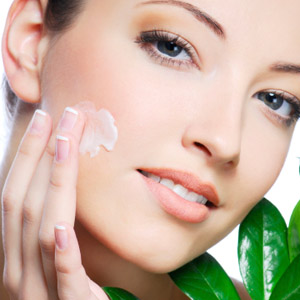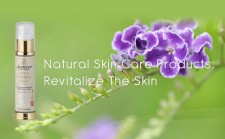 Excitement about green tea in scientific research seems to be growing. Nearly 600 research articles were published on this herb or its ingredients in 2014 alone. These are part of the total of more than 5,500 articles published on green tea since the 1940s. The good news for folks with troubled skin is that some of the more recent of these have focused on the benefits of green tea for restoring skin health. A significant review on this topic appeared at the end of 2014, in the Journal of Dermatological Treatment, titled, Polyphenols as novel treatment options for dermatological diseases: A systematic review of clinical trials. It turns out that the stars of the show for polyphenols are the main ingredients found in green tea. Based on the findings of this review, among the several conditions of troubled skin that can benefit from polyphenols are alopecia, acne vulgaris, fungal infections, hyperpigmentation and photoaged skin. Let’s take a look at just one of these, acne vulgaris, to see what the research shows about what green tea can do.
Excitement about green tea in scientific research seems to be growing. Nearly 600 research articles were published on this herb or its ingredients in 2014 alone. These are part of the total of more than 5,500 articles published on green tea since the 1940s. The good news for folks with troubled skin is that some of the more recent of these have focused on the benefits of green tea for restoring skin health. A significant review on this topic appeared at the end of 2014, in the Journal of Dermatological Treatment, titled, Polyphenols as novel treatment options for dermatological diseases: A systematic review of clinical trials. It turns out that the stars of the show for polyphenols are the main ingredients found in green tea. Based on the findings of this review, among the several conditions of troubled skin that can benefit from polyphenols are alopecia, acne vulgaris, fungal infections, hyperpigmentation and photoaged skin. Let’s take a look at just one of these, acne vulgaris, to see what the research shows about what green tea can do.
Acne Vulgaris
Acne vulgaris, or simply acne, is characterized as the chronic appearance of blackheads, whiteheads, pimples, and greasy skin. This condition develops when normal secretion of sebum (skin oil) from hair follicles becomes blocked. The blockage forms a plug that can become infected and inflamed, which results in redness and possibly scarring. The main culprit in developing an inflammatory skin infection is a species of bacteria known as Propionibacterium acnes, shortened to P. acnes for convenience. This is a common and generally harmless bacterium that lives on everyone’s skin. It becomes infectious when follicles become plugged. This means that P. acnes is not necessarily the cause of acne as much as it is an opportunistic agent that makes things worse. Mainstream medical approaches to treating acne revolve around the direct skin application of harsh oxidants such as benzoyl peroxide and salicylic acid. Medical doctors also may prescribe antibiotics in extreme or otherwise intractable cases, although P. acnes long ago developed resistance to this treatment.
Green Tea to the Rescue
Recent research on the use of green tea against acne can be summarized by the following five key studies. Study 1. Journal of Drugs in Dermatology (2009). A topical 2% green tea lotion reduced the mean acne severity index from 2.05 to 1.25 after 6 weeks of treatment., a decrease of 39.02%. The main conclusion was that green tea is an effective and cost-effective treatment for mild to moderate acne. Study 2. Bosnian Journal of Basic Medical Sciences (2010). A topical 3% extract of green tea caused a significant reduction in sebum production. The authors concluded that this extract is ideal in all aspects and can be helpful in skin disorders such as acne. Study 3. Archives of Dermatological Research (2012). The main active components of green tea, collectively called green tea catechin, led to a significant decrease in the number of clogged hair follicles and pustules in acne patients. Furthermore, this extract was found to suppress inflammatory hormones that are associated with infection by P. acnes. The study also showed that green tea catechin has a therapeutic effect at the molecular level on multiple pathways that lead to inflammation from acne. Study 4. Journal of Investigative Dermatology (2013). The most powerful of the green tea catechins, epigallocatechin-3-gallate (EGCG), was shown to target almost all of the pathogenic features of acne. It reduces the production of inflammatory hormones, it modulates sebum excretion, and it inhibits the growth of P. acnes. This study also entailed a clinical experiment that showed the topical application of EGCG to significantly improve the symptoms of acne. This most recent study came out of the Acne Research Laboratory at the Seoul National University Hospital in South Korea. It clearly represents one of the most important current areas of research involving green tea for herbal skin care.
Take-Home Lessons on Green Tea
Recent research tells us that green tea and its main components are effective natural ingredients for treating acne. However, that is not the only valuable lesson from this research. The other one is that, since green tea is important for skin health in general, it is equally valuable in preventing skin from becoming troubled in the first place. In other words, green tea is great if you have troubled skin and it is great if you want to prevent having it. Of course, green tea is not the only herb that helps with oily skin, clogged pores, or bacterial infection. Indeed, many herbs provide these kinds of benefits, particularly when combined with green tea in formulas such as the Purifying Toner by Jadience Herbal Formulas.


